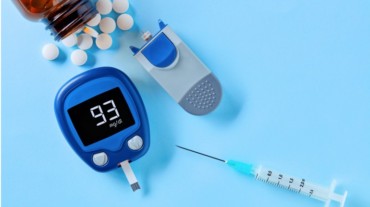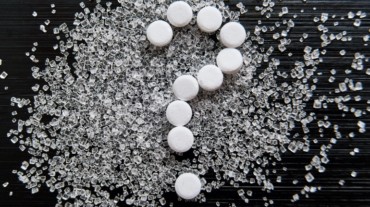
If you love everything sweet but hate the calories that come with it, it is quite obvious that artificial sweeteners mean a lot to you! Among the many types of artificial sweeteners available in the market today, stevia is one of the best all-natural no-calorie sweeteners that is widely used. Despite tasting sweeter than real sugar, it does not cause a spike in your blood sugar levels
Stevia is a plant native to South America that has been in use as a natural sugar substitute and flavoring ingredient for hundreds of years. Today, zero-calorie stevia, in the form of high-purity stevia leaf extract, is being used globally to reduce energy and added sugar content in foods and beverages. But are you aware of the stevia benefits beyond sweetening foods? This healthy natural sweetener may reduce your health risk for some common ailments.
According to a 2017 article in the Journal of Medicinal Food, stevia has the potential to treat endocrine diseases such as obesity, diabetes, and hypertension. There are numerous health benefits linked with stevia. Some of them are:
Since sugar drastically raises blood glucose and insulin levels, replacing it with a non-glycemic sweetener like stevia can help to regulate blood sugar levels.

The result of one study showed that stevia has minimal to no effect on blood glucose, insulin levels, and blood pressure. Humans who consumed stevia had lower post-meal sugar and insulin levels than those who consumed aspartame. This study also found that those who consumed stevia didn’t have the usual sugar cravings associated with using other sugar substitutes.
Also, read: That diet soda can give you diabetes and science blames artificial sweeteners for it
There can be numerous reasons for obesity and weight gain. Stevia is a non-nutritive sweetener. Stevia, which does not have sugar and contains very few calories, helps in reducing the amount of energy consumed without sacrificing sweetness. Although we need more studies to support the benefit of stevia for weight loss.
According to a 2009 study, stevia leaf powder may help manage cholesterol. Those who participated in the study consumed 20 milliliters of stevia extract daily for one month. The study found stevia lowered total cholesterol, LDL (“bad”) cholesterol, and triglycerides with no negative side effects. It also increased HDL (“good”) cholesterol. What’s more? It is associated with reduced heart disease risk.

If you’re using artificial sweeteners like stevia for better health for yourself and your family or for weight loss, it’s time to rethink that decision. According to the Food and Drug Administration (FDA), steviol glycosides, which are refined extracts of stevia like Reb A, are recognized as safe.
But several studies have identified potential side effects. There’s growing concern that raw stevia herb may harm your kidneys, reproductive system, and cardiovascular system. It may also drop blood pressure to extremely low levels or interact with medications that lower blood sugar.
Select Topics of your interest and let us customize your feed.
PERSONALISE NOWAlthough stevia is considered safe for people with diabetes, brands that contain dextrose or maltodextrin should be treated with caution.

A 2019 study reported a possible link between nonnutritive sweeteners, including stevia, and disruption in beneficial intestinal flora. The same study also suggested non-nutritive sweeteners may induce glucose intolerance and metabolic disorders.
Some stevia products also contain sugar alcohol. People with sensitivity to sugar alcohol may experience bloating, abdominal cramps, nausea, and diarrhea, though one type of sugar alcohol, erythritol, poses less risk of symptoms than others. As long as stevia is highly-purified and used in moderation, it will not cause side effects and can be consumed worry-free. So relish responsibly!